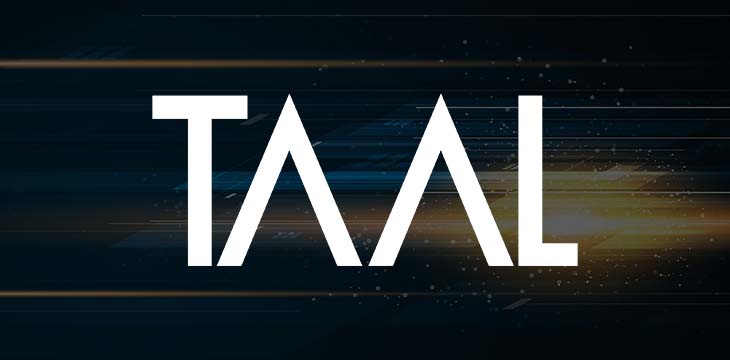|
Getting your Trinity Audio player ready...
|
Canadian blockchain services company TAAL (CSE: TAAL) (FWB: 9SQ1) (OTC: TAALF) increased its income from hashing operations by 334% in 2021, according to its recently released year-end financial report. Revenues for 2021 surpassed CAD$34.6 million, up from CAD$7.99 million in 2020. TAAL also “mined” 162,000 BSV coins and processed over 172 million transactions on the BSV network.
In its statement, TAAL called 2021 “a year of growth and execution,” saying it would invest the additional income in developing new products, including value-added services for blockchain-based enterprise clients. It added that it had met its hashing targets, reaching 400 petahashes per second (PH/s). This included TAAL’s own machines and hashing power rented from third parties.
TAAL also acquired New Brunswick-based clean energy facility Chief Fuels Inc. In cooperation with a professional property fund, it will commit up to US$20 million towards installing heavy plant equipment and other infrastructure at the facility. The goal is to create an exclusive Bitcoin data services center for TAAL that will see the company’s hashing capacity grow even more in 2022 and the future.
Its gross revenue from hashing operations alone in 2021 was CAD$34,664,905 (up from CAD$7,993,449 in 2020). The adjusted EBITDA was CAD$3.3 million, up from its $9.6 million loss the year before. As of December 2021, it held approximately 77,000 BSV units in its treasury, 7,000 BSV more than its issued guidance.
The additional BSV mined came from rented hashing power in third-party locations remaining online, despite TAAL’s issues with hosting providers in Alberta.
Enterprise blockchain products and services
Mining/processing operations still financially support TAAL’s other products—which, while in use at some firms using the BSV blockchain to secure data, have yet to reach a profitable and sustainable market worldwide. The company said new developments in BSV technology would allow it to broaden the scope of these offerings and demonstrate their usefulness in the enterprise world.
Chief among these was the release of a protocol for STAS tokens on BSV. STAS runs natively on the BSV blockchain using Bitcoin script, rather than relying on externally-developed token protocols that may only be used within compatible systems. Having released a STAS white paper and software development kit, TAAL intends to license the technology to others looking to create tokenized BSV assets and other services (e.g., loyalty points, tickets, discount coupons, and more).
The company also produces TAAL Console and manages an API transaction processing service for its clients. TAAL Console is an all-in-one dashboard portal to manage all aspects of a client’s BSV blockchain-related operations, including account management, reports and analytics, provision of API keys, plus live customer support and documentation. The API service is part of TAAL’s vision to increase the ratio of transaction processing fees (BSV supports systems producing millions of micro and nano-transactions at a small fraction of a U.S. cent) to block subsidies (the amount of BSV each processor receives for confirming a transaction block).
Companies already using TAAL’s blockchain services include SmartLedger, Gate2Chain, UNISOT, and Tokenized. While some of these firms provide other services within the BSV ecosystem, many are outside the BSV-specific services market. Those working in areas such as supply chain management, IT security, and environmental monitoring show there is clearly a use for the BSV blockchain in the wider world. BSV’s unbounded scaling capacity and ability to process/secure any kind of data make blockchain technology useful to the economy. In contrast, other blockchain networks (especially those using the more-secure proof-of-work processing method) tend to focus narrowly on financial services and asset trading.
Such use cases, along with TAAL’s clean energy projects, make proof of work (PoW) far more efficient than it’s traditionally regarded. While some jurisdictions, such as the EU and New York State, have hinted at restricting or even banning PoW processing facilities due to excessive energy consumption, BSV serves as an example of how things should be done to make a PoW blockchain beneficial to the world economy.
Watch: CoinGeek New York presentation, TAAL: Leading the Future of Blockchain Transaction Processing

 03-03-2026
03-03-2026 




